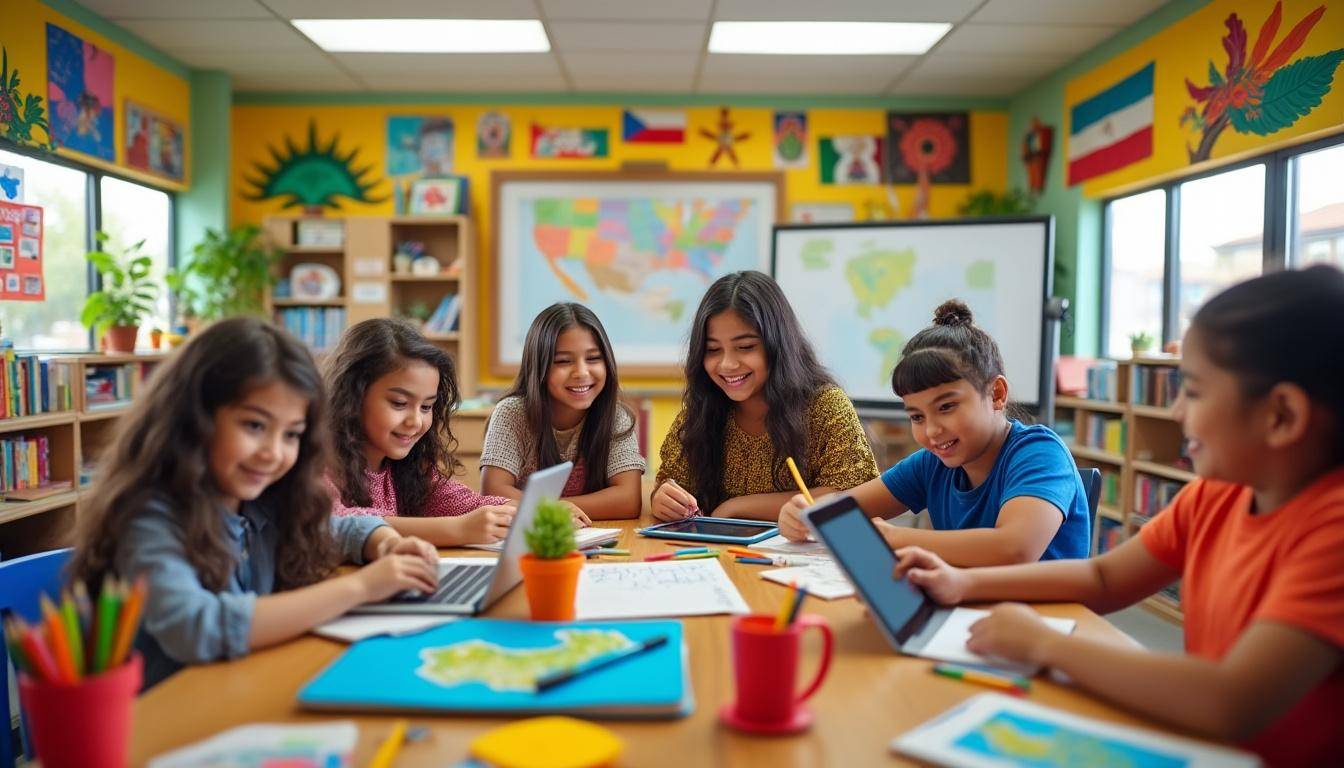As Hispanic Heritage Month concludes, we honor not only the rich cultural legacy of Latino communities but also emphasize the urgent need to secure an equitable educational future for Latino children. This dedication is critical to empower the next generation to realize their full academic and personal potential.
Understanding the Importance of Latino Heritage in Education
The theme “Collective Heritage: Honoring the Past, Inspiring the Future” symbolizes the profound sacrifices that underpin Latino success stories and calls for intentional investment in children’s education today. Latino families, like many immigrant families, often face significant hurdles — language barriers, complex immigration systems, and systemic inequities — yet they persist with unwavering hope for their children’s futures.
Core elements highlighting the significance of Latino heritage in education:
- Recognition of the resilience and cultural richness Latino children bring to classrooms.
- Embracing bilingualism and multiculturalism as educational assets.
- Creating inclusive curriculums featuring Latino authors and history, which organizations like UnidosUS and Latino Kids Read actively promote.
- Highlighting family stories that inspire perseverance and motivate academic achievement.
- Supporting educators through initiatives like Latinas for Education to strengthen culturally relevant teaching.
The Impact of Early Literacy and Numeracy on Latino Students’ Futures
Solid foundations in literacy and math are pivotal for Latino students’ long-term success. Massachusetts’ recent data reveal critical disparities: only 17-31% of Latino students meet or exceed proficiency standards, with math scores up to 51% below the state average. These gaps hinder students’ abilities to pursue higher education or vocational paths effectively.
Essential strategies to support foundational skills development:
- Adopting evidence-based literacy curricula across all school districts in line with state legislation efforts (bills S.338 and H.698).
- Enhancing teacher preparation programs to deliver effective literacy and numeracy instruction, a focus of bill H.669.
- Implementing culturally responsive teaching aided by resources from Latino Literacy Now and BE-Latina Education.
- Encouraging family and community involvement through programs like Hispanic Scholarship Fund and Futuro Scholars.
- Providing after-school tutoring and mentoring tailored to Latino students’ unique needs, supported by organizations such as Risas y Letras.
Building Collective Community Partnerships to Empower Latino Students
Educational success extends beyond classrooms. Partnerships among families, schools, and cultural organizations create a support network vital to Latino children’s empowerment. Platforms like Education to the Top emphasize community collaboration as a core driver of educational progress.
Key attributes of impactful community partnerships include:
- Active engagement of Latino parents, recognizing 37% already expect alternative educational routes for their children.
- Collaborations with Latino-focused organizations to deliver mentoring and scholarships, such as Latinitas and Hispanic Heritage Foundation programs.
- Creating cultural celebrations integrated with educational goals—linking heritage to academic motivation and identity pride.
- Mobilizing advocacy for policies focused on educational equity and investment.
- Sharing success stories to inspire students, educators, and policymakers alike.
Highlighting Role Models and Stories Through Inclusive Education
Featuring Latino authors and role models in schools not only enriches curriculum but also fosters student connection to their heritage and aspirations. Inclusive representation nurtures confidence and ambition.
Examples of inclusive educational practices:
- Libraries offering curated selections from Hispanic authors supported by Latino Kids Read and UnidosUS.
- Faculty-led book discussions and storytelling events that celebrate Latino culture and history.
- Incorporating biographies of Latino leaders in various fields, inspiring students with relatable success stories.
- Promoting bilingual literacy programs and bilingual education models.
- Engaging multimedia tools and arts programs facilitated by organizations such as Latinitas and Risas y Letras.
Urgent Call to Action: Investing in a High-Quality Education for Latino Children
The legacy of immigrant families and the resilience of Latino communities demand a commitment to practical action—not mere recognition. Advancing educational equity requires a systemic approach that elevates literacy and numeracy proficiency through sustained investment.
Priorities for investment and policy impact:
- Statewide initiatives such as the Governor’s Literacy Launch providing strategic frameworks to improve literacy rates.
- Legislative support for consistent curriculum standards and quality teacher training.
- Securing funding for after-school and summer programs that target learning loss.
- Expanding scholarship and mentoring opportunities via Hispanic Scholarship Fund and Futuro Scholars.
- Advocating for family inclusion and culturally responsive education models, aligned with programs like BE-Latina Education.
Every step in this direction honors the sacrifices of Latino parents who dared to dream for their children’s better futures. To genuinely celebrate Hispanic Heritage, communities and policymakers must commit to providing Latino children with the tools and opportunities that empower them to lead, innovate, and thrive.
Explore more about impactful community partnerships and educational resources supporting Latino students on Education to the Top’s platform. Learn how schools like those featured at Framingham Catholic School implement cultural and academic excellence. Discover initiatives supporting diverse learners worldwide, such as Afghanistan madrassa enrollments and cultural education at the Chico State Science Museum.


